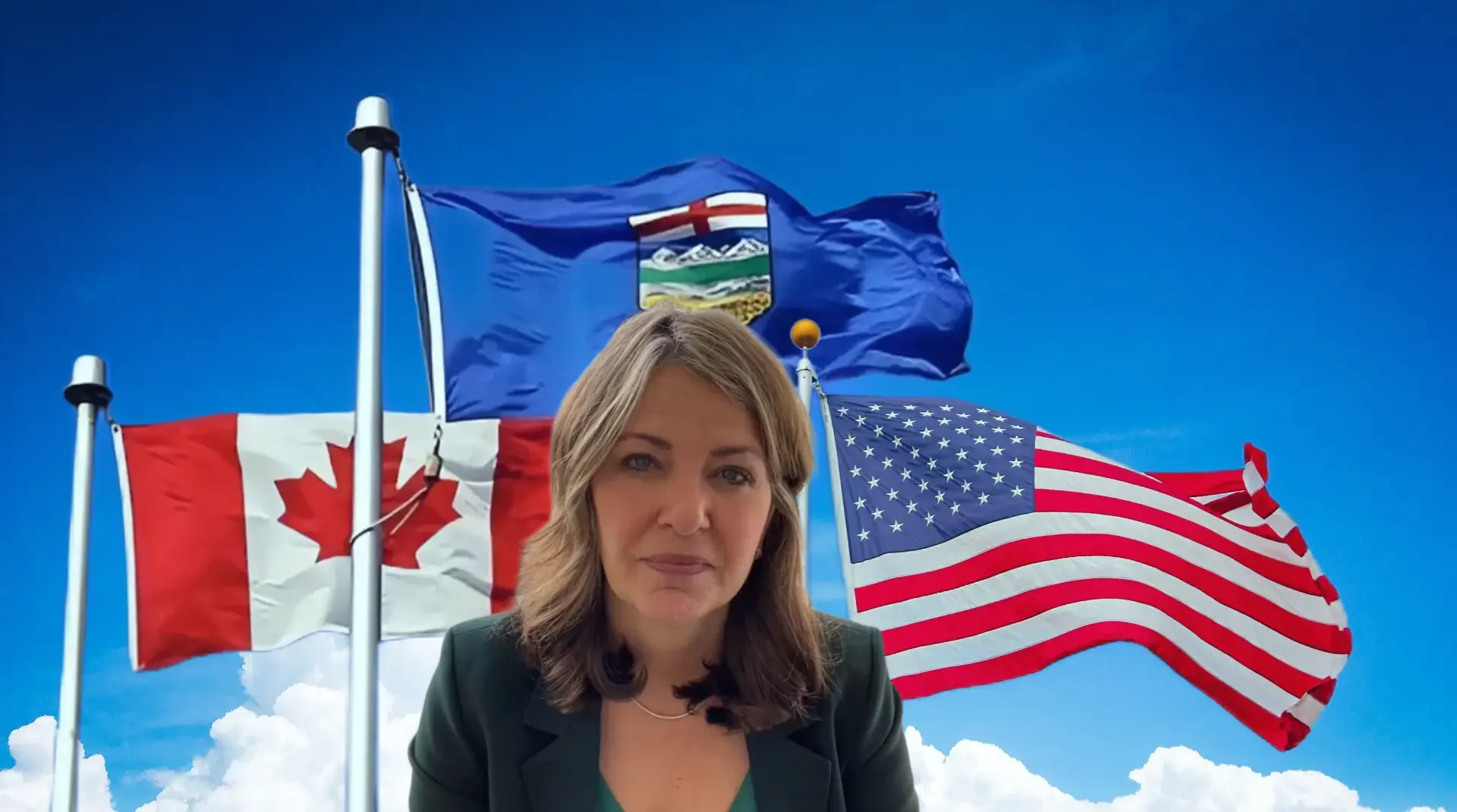Alberta Premier Danielle Smith is escalating her ongoing pressure to secure federal support for a new pipeline project to the British Columbia coast, warning that failure to address Alberta’s energy concerns could have broad political and economic consequences for the country.
Speaking with reporters at the Global Energy Show in Calgary today, Smith reiterated the case she has been making in public and private for several weeks: that Ottawa must act to support a major new oil pipeline and the multi-billion-dollar Pathways carbon capture project, or risk deepening Western alienation and economic stagnation.
“We’re going to operate in good faith and hope we’ll be able to have more to tell you in a few weeks,” Smith said. “But I’ve never seen separatist sentiment be as high as it is right now.”
The premier said her government is engaging with multiple potential proponents, including those with a track record of building pipelines in Canada. She acknowledged that a key barrier remains the lack of certainty in the approval process.
“No one’s going to come forward with a project without some guarantee it’s going to be approved,” she said. “That’s why we’re testing the federal two-year project list timeline.”
Smith has repeatedly pitched a “grand bargain” to the federal government to approve the multi-billion-dollar Pathways carbon capture project with a new oil sands pipeline. The Pathways project, expected to cost between $10 billion and $20 billion, has no revenue stream to offset its expenses.
“If you couple it with a million-barrel-per-day pipeline, well, that allows you $20 billion worth of revenue year after year,” Smith said. “Suddenly, a $10 to $20 billion cost to decarbonize looks a lot more attractive.”
While ruling out direct government ownership in any new pipeline, Smith said Alberta is prepared to back the project through its royalty-in-kind programs. These initiatives allow the province to pledge barrels of oil or gas as an anchor shipper, helping de-risk a project without fronting large sums of public money.
“We can pledge 200,000 barrels to get things started if we need to,” Smith said. “Or we can come in at the end to bridge the gap. We don’t pay unless the pipeline gets built.”
Smith also pointed to Alberta’s role as a potential aggregator for smaller producers that typically struggle to secure space in large pipeline projects.
Smith again rejected the federal government’s target of a net-zero electricity grid by 2035, calling it unfeasible. She endorsed 2050 as a more realistic goal, citing Alberta’s carbon capture investments.
“At today’s technology, carbon capture can capture 70 to 75 per cent of emissions,” she said. “And it’s only going to get better.”
The premier also highlighted international opportunities for emissions reduction credits by exporting cleaner fuels like ammonia and natural gas to countries such as Japan and South Korea.
“We can market directly to coal plants to switch from coal to natural gas and share credit for that under our Paris Agreement commitments,” she said.
Reflecting Alberta’s growing role on the international energy stage, Smith said her deputy energy minister will attend upcoming OPEC meetings in Vienna as an observer. This comes amid projections that global oil consumption could reach 120 million barrels per day by 2050, much of it driven by demand in developing nations.
“We now need to understand what OPEC sees the world demand being,” Smith said. “In 1971, 80 per cent of the world’s energy came from oil and gas. Today it’s still about 80 per cent—and it may well be 80 per cent in 2050.”
Smith argued that Alberta must be part of the global conversations if it hopes to continue expanding its energy exports.
Asked about the political risks of inaction from Ottawa, Smith cited growing separatist sentiment in the province.
“We’ve done our own polling and seen numbers as high as 37 per cent,” she said. “But I’ve also seen that dissipate when Ottawa addresses legitimate concerns.”
Smith reiterated her list of nine key demands to the federal government, ranging from the emissions cap to carbon pricing and tanker bans. She said she is open to compromise but warned the federal government not to underestimate the political consequences of inaction.
“I can’t imagine there will be another project on the national list that will generate as much revenue, GDP, and high-paying jobs as a buimen [bitumen] pipeline to the coast,” she said.
Smith said Alberta has formed a negotiating team, including ministers Rajan Sawhney and Jason Nixon, to sit down with federal counterparts and work through each issue.
Smith also weighed in on emerging trade negotiations between Canada and the United States, expressing cautious confidence in Finance Minister Mark Carney’s leadership. But she strongly criticized the use of counter-tariffs, saying they have hurt Alberta producers by raising costs on everything from steel to livestock feed.
“I don’t like counter-tariffs because counter-tariffs hurt our people,” she said. “If they hit us and we hit back harder, we’re hitting Canadians twice as hard.”
Smith said she would prefer a renewed free trade agreement to restore tariff-free movement of goods, especially as Canada prepares for the upcoming G7 summit.
“All the premiers have asked for an early renegotiation of the Canada-U.S. Free Trade Agreement just so that we can have that stability,” she said. “If it comes as soon as the G7 or just before, that would be good for the country.”

